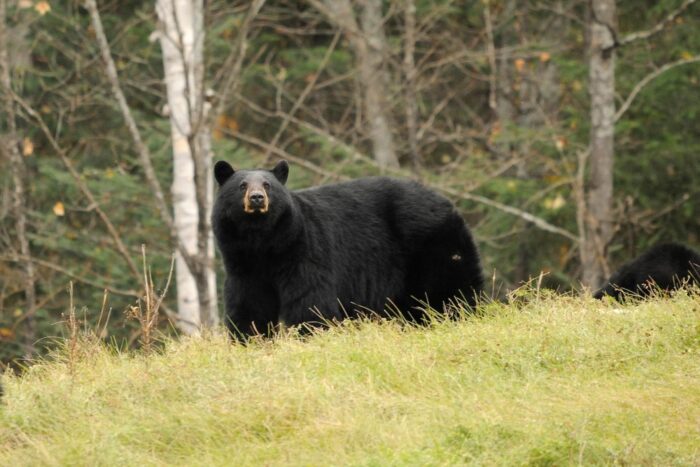The next segment of West Virginia’s black bear firearms season will run concurrently with the buck firearms season.
SOUTH CHARLESTON, W.Va. – The West Virginia Division of Natural Resources today reminded deer hunters that there will be a concurrent bear season in all or parts of 42 counties open to buck firearms hunting.
The concurrent bear season is without dogs and will run from Nov. 20 to Dec. 3. Hunting is legal on both public and private property.
“Concurrent bear hunting during deer season takes advantage of a time of year when the maximum number of hunters are in the woods,” said Colin Carpenter, black bear project leader for the WVDNR. “This helps manage bear populations by increasing the number of harvests, but also provides a unique opportunity for hunters who may have never hunted bears to harvest one.”
The best-producing mast crops of 2023 were in the red oak family and hunters should find bear feeding activity in the same places as deer.
“The fact that both bears and deer will be seeking red, black and scarlet oak acorns should give hunters a good chance to harvest either species during the upcoming season,” Carpenter said.
Due to spotty acorn production, hunters are encouraged to scout immediately prior to the season to find the most recent feeding activity.
Additional Bear Hunting Opportunities
Bear hunting opportunities continue after the buck-gun season as well. All or parts of 26 counties will be open for bear hunting with or without dogs from Dec. 4–31. In addition, all or parts of 35 counties will be open for bear hunting without dogs from Dec. 4–31.
Successful hunters are required to submit a first premolar tooth from each harvested bear. Hunters who harvest a female black bear are encouraged to save the reproductive tract or all the entrails. Reproductive tracts and entrails should be kept cool or frozen. Hunters should contact their nearest district office or Elkins Operations Center to arrange a drop-off. The WVDNR will offer hunters who submit a complete reproductive tract a $20 gift card for their effort.
Data obtained from tooth samples and reproductive tracts are used for black bear population monitoring. Information on how to collect and submit a black bear first premolar tooth and reproductive tract can be found on pages 37–38 in the West Virginia Hunting and Trapping Regulations Summary, available to download at WVdnr.gov/hunting-regulations.
Hunters are reminded to purchase their hunting license and bear damage stamp at WVhunt.com. For more information about bear hunting, check pages 34–40 in the West Virginia Hunting and Trapping Regulations Summary.

